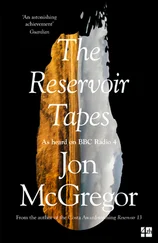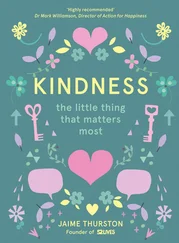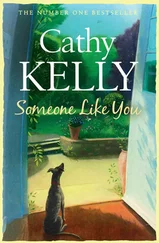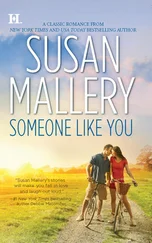He drove home along the straight road beside the Sixteen Foot, holding his hand to his chest. The moonlight shining off the narrow water. He was thinking about all the things she’d said, just as she was thinking about all the things he’d said.
He was thinking about his father, he said later, and about how long his father had been alone, and about how he knew now that he wouldn’t be able to live on his own in the same way. Not now he knew what it meant to be with someone else. He was still thinking about her when he drove into a man and killed him.
First he was driving along the empty road thinking about her, and then there was a man in the road looking over his shoulder and the car was driving into him. It was hard to know where he’d come from. He’d come from nowhere. He was not there and then he was there and there was no time to do anything. There was no time to flinch, or to shout. He didn’t even have time to move his hand from his chest, and as the car hit the man he was flung forwards and his hand was crushed against the steering wheel. The man’s arms lifted up to the sky and his back arched over the bonnet and his legs slid under one of the wheels and his whole body was dragged down to the road and out of sight.
Those arms lifted up to the sky, that arching back.
The sound the man’s body made when the car struck him. It was too loud, too firm, it sounded like a car driving into a fence rather than a man. And the sound he made. That muffled split-second of calling-out.
His arms lifted up to the sky, even his fingers pointing upwards, as if there was something he could reach up there to pull himself clear. His back arching over the bonnet of the car before being dragged down. The jolt as he was lost beneath the wheels. George’s hand crushed between his chest and the steering wheel.
Then stillness and quiet.
He lay on his back with his legs underneath him, looking up at the night. His legs were bent back so far that they must have been broken. George stood by the car for a long time. The man didn’t make a sound. There was no sound anywhere. The night was quiet and the moon bright and the air still and there was a man lying in the road a few yards away. It didn’t feel real, and there were times now when they both wondered whether it had really happened at all. But there was the way the man’s neck felt when George touched his fingers against the vein there. Not cold, but not warm either, not warm enough: he feels like a still-born calf . There was no pulse to feel. Only his broken body on the tarmac, his eyes, his open mouth.
He was wearing a white shirt, a red V-necked jumper, a frayed tweed jacket. His arms were up beside his head, and his fists were tightly clenched. A broken half-bottle of whisky was hanging from the pocket of his jacket. There didn’t seem to be any blood anywhere; there were dirty black bruises on his face, which might have been old bruises anyway, but there was no blood. His clothes were ripped across the chest, but there was no blood. It was hard to understand how a man could be dragged under the wheels of a car and not bleed . It was hard to understand how he could not bleed and yet die so quickly.
The whites of his eyes looked yellow under the moonlight.
It was hard to understand who he was, and why he had been on the road in the middle of the night. Why he was dead now. It was hard to know what to do. George knelt beside him, looking out across the fields, up at the sky, at his father’s car, his shaking hands, the sky.
He had his reasons, he says. He’s often regretted it, and he’s often thought that his reasons weren’t enough, but he thinks he would do the same again.
If he’d been older when he made that journey then perhaps he would have been stronger; perhaps his thoughts would have been clearer. But he was seventeen, and he had never knelt beside a dead man before. So he drove away. He stood up, and turned away from the man, and walked back to his father’s car, and drove away. He didn’t look in the rear-view mirror, and he didn’t turn around when he slowed for the junction.
I suppose it was at that stage that I began to realise what had happenedwhat I had done .
That was how he put it, when he told her, walking out on the path beside the canal after lunch, the dogs running along ahead of them with their claws clicking on the tarmac strip. I suppose.
He had driven his father’s car into a man, and then over him, and now that man was dead. He felt a sort of sickness, a watery dread, starting somewhere down in his guts and rising to the back of his throat. His hands were locked on the wheel. He couldn’t even blink.
And he knew, even before he got back to his father’s house, that he would have to return to the man. He couldn’t leave him laid out on the road like that, with his legs neatly folded under his back. He knew, or he thought he knew, that when the man was found then somehow he would be found too, and the girl who’d drawn upon his bare chest wouldn’t even look him in the eye.
So it was her fault as well, it seems.
He fetched a shovel from a barn at his father’s farm and drove back to where he’d hit the man. It sounds so terrible now. Cowardly? He carried the shovel down the embankment to the field below the road and took off his jumper and began to dig.
He was used to digging. The field had only recently been harvested, and the stubble was still in the ground , so he lay sections of topsoil to one side to be replaced. He was thinking clearly, working quickly but properly, ignoring the purpose of the hole. Once, knee-deep in the ground , he looked up the bank and realised what he was doing. But he couldn’t see the man up on the road, so he managed to swallow the rising sickness and dig some more. And all this time, the sound of metal on soil, the sky above.
And then it was deep enough. It was done. So long as it was further beneath the surface than the plough-blades would reach then it was deep enough, most probably . He climbed up the embankment to the road, wanting to hurry and get it done but holding back from what he had to do, from the fact of having to touch him, having to pick him up and carry him down the bank and into the hole he had made. The death he had made in the hole he had made in the earth. He bent down to take the man’s arms. He could smell whisky . He stopped, unwilling to touch him, unwilling to go through with what he’d found reason to do. They were good reasons, but they didn’t seem enough . But then he remembered her skin on his, and her eyes, and he knew, he said, that he could do anything not to lose that.
She’d made him do it, then. That was how it had happened.
He gripped the man’s elbows and lifted them up to his waist. He backed away towards the embankment and the man’s legs unfolded from beneath him, his head rolling down into his armpit, his half-bottle of whisky falling from his pocket and breaking on the road. He didn’t stop. He kept dragging him away, away from the road, down the bank, into the field.
She’d said, when he finally told her all this, that she wanted to know it all. How it was done. How it had felt. So now she knew.
He laid the man down beside the hole in the earth and rolled him into it. The man fell face down, and he felt bad about that , about the man’s face being in the mud. He went back to the place on the road and picked up the pieces of glass. He threw them down on to the man’s back, and then he took the shovel and began to pile the earth back into the hole.
He threw soil over the man until he was gone, until the soil pressed down on him so that he was no longer a man or a body or a victim or anything. Just an absence, hidden under the ground. It was only then that he looked up at the sky, dark and silent over him, the moon hidden by a cloud. He drove past her house in March again, and then back to his father’s house. He put the car-keys away in the kitchen drawer, and the shovel in the barn, and he stood in the shower until the hot-water tank had emptied and he was left standing beneath a trickle of water as cold as stone.
Читать дальше
Конец ознакомительного отрывка
Купить книгу
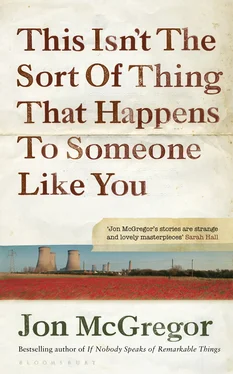
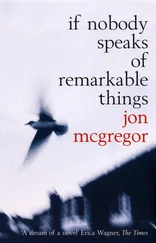


![Нил Уолш - Единственное, Что Имеет Значение [The Only Thing That Matters]](/books/393630/nil-uolsh-edinstvennoe-chto-imeet-znachenie-the-onl-thumb.webp)
